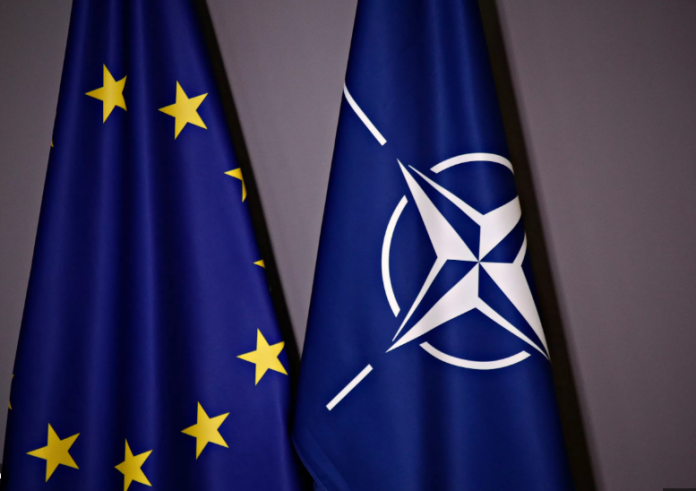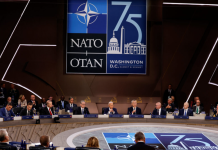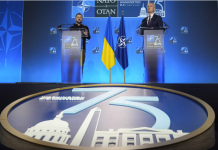The most important discussion on the future of European defense is taking place not at NATO, but at the European Union—and it is not between heads of state or defense ministers, but finance ministers. EU finance ministers are looking to reinstate and reform the EU Stability and Growth Pact, which sets limits on the debt and deficit of EU member states. This could have a profound impact on the future of European defense and make it virtually impossible for many EU-NATO members to increase defense spending. And yet everyone—from EU officials, EU member state governments, NATO, and the White House—are ignoring the defense implications. Put bluntly, if the Germans get their way, then European security is in trouble.
The Stability and Growth Pact is a byproduct of the creation of a common currency: the euro in the late 1990s and the merging of European monetary policy. By creating a common currency, European countries linked their economies together, which means that debt in one country would have implications for others. A European pact was created, similar to the obligation that U.S. states run a balanced budget (debt below 60 percent of GDP; deficit below 3 percent of GDP). During Covid-19, the stability and growth pact was wisely suspended as eurozone countries desperate to save their economies borrowed and spent to prevent an economic crash.
Yet with the pandemic over, there is now a push to reactivate the stability and growth pact. But there is an understanding that the pact needs reform. The question is how? There is widespread recognition that a return to a rigid debt rule would be a mistake. When European states adopted austerity measures following the 2008 financial crisis, they cut spending to address rising debt instead of stimulating their economies. The result was Greece suffered a depression, European recessions got worse, as did European debt levels. Europe’s austerity-driven economic response to the crisis made the crisis worse.
Europe has learned, but Germany has not. Christian Lindner, the German finance minister of the libertarian Free Democratic Party (FDP), is insisting that the European Union return to a focus on deficit reduction and that indebted countries should take dramatic steps to reduce their debt. He wrote in a Financial Times op-ed arguing that “common fiscal rules have to ensure a rapid and sufficient reduction of deficits and high debt ratios.” The European Union and other EU states are pushing back, but Germany as the largest and most powerful country within the European Union has already shifted the focus in Brussels to debt reduction. Lindner’s FDP, struggling in the polls, has seemingly dug in.
But if Lindner and Germany get their way, there is simply no way that many of the EU members, almost all of whom fall well short of spending 2 percent of GDP on defense, will be able to both increase defense spending and cut spending to reduce their deficits. Thus, if Lindner gets his way, there is little chance Spain, Italy, Romania, and France, to name a few, will be able to significantly increase defense spending. In 2022, thirteen Member States surpassed the 60 percent debt-to-GDP ratio that Lindner wants to put back in place. Furthermore, Europe’s aging population will create added fiscal pressure in the years ahead. Italy has suggested creating exemptions from the fiscal rules for defense, noting the rules at as a “constraint” on defense spending. As Italian defense minister Guido Crosetto explained, “if we do not resolve the current framework of inconsistency between the responsibility to strengthen security and the public finance limits imposed by the EU, it will be very difficult to reach the 2 percent minimum threshold envisaged by NATO within a reasonable timeframe.” But Lindner is “not yet convinced,” despite the ongoing war in Europe. If Germany prevails, defense spending will be more likely to be cut than increased in the coming years.
This should also be a wake-up call for Washington. A common refrain one hears in Washington, especially in Pentagon circles, is that the European Union “doesn’t do defense.” But this is utterly false. The European Union controls the budget of its members and that directly impacts what they can spend on defense. The problem though, is that because the European Union is only a limited defense actor—its bureaucrats and officials, as well as member state finance ministers, rarely make this connection or think of defense and geopolitics. NATO and the United States are oblivious to these internal EU financial discussions and do nothing to influence them, yet only later are they shocked and dismayed at the lack of European commitment to defense.
The EU finance ministers’ debate is essentially happening in an economic fantasyland divorced from the reality that Europe is at war. Europe not only needs to help sustain Ukraine’s war effort—something that it is not clear the United States will be able to do over the long term—but also needs to dramatically rebuild its military. This is costly. Not only does Ukraine’s economy have to be rebuilt, the European Union will also need to dramatically invest to accelerate the green transition and strengthen its energy resilience. Europe thus needs to aggressively spend on defense and its energy security.
It would be one thing if Lindner was proposing to cap the spending of eurozone member states, while supporting measures at the federal EU level to borrow and spend to address these urgent EU issues—but he’s not. Lindner, and therefore by extension, Germany, strongly oppose the formation of an EU permanent fiscal capacity and additional EU spending. If the European Union can borrow in response to a pandemic, it surely should do so in response to a war. But the current German government, led by Chancellor Olaf Scholz, a key architect of pandemic borrowing plan, has deferred to Lindner on EU financial issues.
The European Union, NATO, and the United States need to realize by overseeing eurozone spending, the European Union does in fact “do defense.” Refocusing on debt reduction when there is a war on is utterly irresponsible. U.S. and NATO leaders need to wake up to the danger and should be calling Berlin, Brussels, and other European capitals to oppose Linder’s efforts. Europe’s security is at stake.
Max Bergmann is the director of the Europe, Russia, Eurasia Program at the Center for Strategic and International Studies in Washington, D.C.





